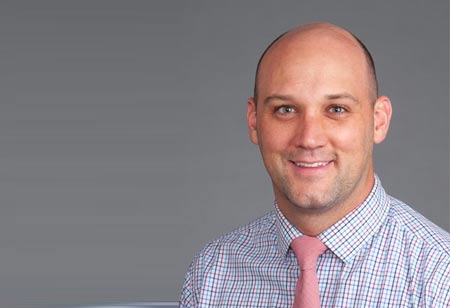Thank you for Subscribing to Healthcare Business Review Weekly Brief

Enhancing Patient Outcomes through Comprehensive Medication Access Support
Healthcare Business Review
Keith Keddington, PharmD, MS, is the clinical pharmacy manager of the medication assistance program at the University of North Carolina (UNC) Health. Prior to this, Dr. Keddington completed a 2-year Health-System pharmacy administration and leadership residency at Wake Forest Baptist Medical Center. He completed his PharmD education at the University of Utah and MS in pharmaceutical sciences with a specialization in Health-System pharmacy administration from the UNC Eshelman School of Pharmacy.
In my role as a clinical manager, I oversee the pharmacy benefit medication assistance program (MAP) at the University of North Carolina (UNC) Health. Our mission is to enhance patient outcomes by navigating barriers to medication access through prior authorization support and easing the financial burden of high out-of-pocket costs. We collaborate closely with patients, outpatient clinical teams and our internal health-system specialty pharmacy in an integrated care model. Partnering directly with our providers and pharmacy team within a shared medical record platform allows for enhanced communication and streamlined continuity of care. In addition to our internal colleagues, we address medication access needs by engaging with external providers, payors, manufacturers and dispensing pharmacies.
“In an ideal healthcare world, medications would be prescribed, approved, billed and dispensed without the need for additional justification or financial interventions.”
The MAP team is comprised of two technician leaders overseeing day-to-day operations and over 20 MAP pharmacy technicians with clinic-specific medication access responsibilities. These technicians support prior authorizations and financial toxicity challenges, such as enrolling patients into copay cards, grant foundations or manufacturer patient assistance programs. Our team also includes two clinical appeals nurses who are responsible for drafting, submitting and following up on appeal letters for providers and patients. In addition to prior authorization and appeal support, the MAP team has been able to demonstrate positive patient financial outcomes.
In fiscal year 2023, the MAP technicians worked over 28,000 unique medication assistance requests, including successfully supporting nearly 5,000 referrals specifically for high-cost medication needs, a service value of $115 million, with $92 million from pharmacy benefit-free drugs and $23 million from copay assistance savings through enrollment in commercial copay cards and foundation grants.
Although programs like ours continue to support patients and providers through these barriers, the mere existence of medication assistance programs underscores ongoing challenges in healthcare delivery.
In an ideal healthcare world, medications would be prescribed, approved, billed and dispensed without the need for additional justification or financial interventions. Navigating the evolving landscape of medication access is challenging and teams that support this work continue to face many complex barriers as manufacturers, insurers and pharmacy benefit managers implement more restrictive formularies or program requirements, leaving patients and providers to bear the financial, clinical and administrative burden.
Specific changes this year have altered how we approach solutions to patient financial toxicity. The growth of copay maximizer plans, accumulator plans and alternative funding programs further complicates our work. Copay maximizer plans to adjust patient out-of-pocket costs, mitigating the benefits of coupons or assistance programs and exacerbating financial burdens. Accumulator plans restrict the use of manufacturer coupons or patient assistance programs towards patient deductibles or out-of-pocket expenses, often leading to surprise bills. Meanwhile, alternative funding programs misallocate manufacturer assistance program funding, leading to more restrictive guidelines and hindering financial relief for the most vulnerable populations.
The growth of these programs has introduced new barriers to medication access, prompting our team to quickly adapt to stay ahead of emerging challenges. To navigate this terrain effectively, we must embrace a mindset open to new opportunities and solutions. Clear and concise communication is paramount, ensuring all involved are aligned and informed. Equally important is recognizing our constraints and strategically allocating resources to meet evolving needs. Specifically, our team at UNC is optimizing our objective data collection using questionnaires and other tools embedded in the electronic health record to identify opportunities to make us more effective and efficient. We are working closely with our clinical teams to make sure MAP services match their needs and enhance our collaborative relationship. We continue to leverage our external relationships with manufacturers, payors and colleagues to stay up to date on potential changes and best practices nationwide.
True progress in expanded and simplified medication access necessitates larger-scale interventions, including legislative measures to better align the priorities of the payors, manufacturers, providers and pharmacies for the good of the patient. Until then, we remain committed to navigating these challenges and advocating for improved access to affordable, efficient healthcare. Our dedication to providing invaluable support underscores our commitment to support each patient we serve on their journey toward better health.









